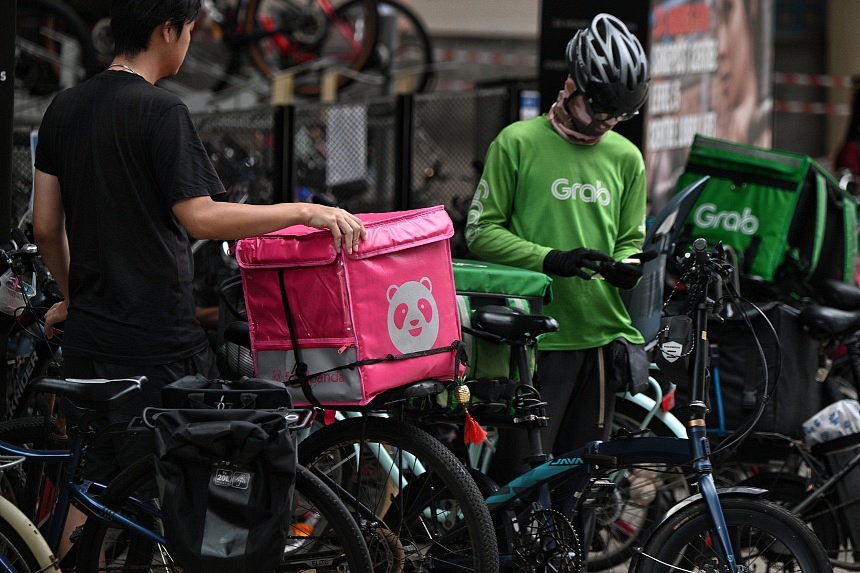
Israel’s Prime Minister Benjamin Netanyahu points at Egypt on a map during a press conference at the Government Press Office (GPO) in Jerusalem on September 4, 2024 [ABIR SULTAN/POOL/AFP via Getty Images]
by Dr Ramzy Baroud
RamzyBaroud
September 10, 2024


When asked why his latest map had erased the whole of the West Bank, Israeli Prime Minister Benjamin Netanyahu retorted with the most detestable answer. “I didn’t include the Dead Sea. It’s not shown on the map. I didn’t show the Jordan River. It’s not on this map. I didn’t show the Sea of Galilee,” he said. The Israeli leader must know that neither the indigenous population of Palestine, nor the occupied territories of West Bank and East Jerusalem — which are recognised as such under international law — are topographical or geographical phenomena that can be overlooked or ignored on a whim.
It should be obvious to anyone, therefore, that Netanyahu deliberately erased the West Bank from the map that he used on 2 September in another one of his pompous tirades on why Israel must maintain “security control” over Gaza. There is ample evidence to show that this assertion is true.
For a start, Netanyahu also erased Palestine and the Palestinians from his previous maps. The prime example was his “New Middle East” map, which he held proudly during a UN General Assembly speech in September 2022. Moreover, Netanyahu does not even recognise such a term as “the West Bank” in the first place. Even in his justification for why his latest map of Israel swallowed the West Bank, he responded by saying that he “was talking about Gaza”, not “Judea and Samaria”.
The Biblical reference to the Palestinian homeland fits perfectly into the prevailing Israeli political discourse, which is now championed by the most ardent far-right, ultranationalist extremists in Israeli society. Israel’s current regime simply does not believe that Palestinians have any historical claim or political rights and aspirations in their own land. Among a long stream of such comments, a few stand out.
Smotrich: ‘My life’s mission is to thwart a Palestinian state’
In March 2023, for example, Israel’s far-right Finance Minister Bezalel Smotrich denied the existence of Palestinians during a private memorial service in Paris. There is “no such thing as Palestinians because there’s no such thing as the Palestinian people,” he claimed.
As for Israeli National Security Minister Itamar Ben-Gvir, the erasure of Palestinians requires action, violent action.
On 23 June, he told a press conference: “The Land of Israel must be settled, and a military operation must be launched. [We must] demolish buildings, eliminate terrorists, not one or two, but tens and hundreds, and if necessary even thousands. The Land of Israel is for the people of Israel.”
And, of course, there’s Netanyahu himself, who in March 2019 stated that Israel is, “The national state, not of all its citizens, but only of the Jewish people.” He ignored the fact that 20 per cent of Israeli citizens are non-Jews; they are Palestinian Arabs.
Such a discourse is backed by action, namely the constant expansion of illegal Jewish settlements, the slow ethnic cleansing of Palestinian communities from various regions in the West Bank and a government programme that, in April 2020, agreed to annex large parts of the occupied region.
We also know that Netanyahu rejects the very idea of a Palestinian state.
He even pushed through a law at the Israeli Knesset that opposed the establishment of a Palestinian state because it would pose “an existential danger to the State of Israel and its citizens, perpetuate the Israeli-Palestinian conflict and destabilise the region.”
That law represents the pinnacle of Netanyahu’s political career, which has largely been dedicated to thwarting any attempt to achieve a negotiated solution based on international law. Palestinian hopes of establishing a sovereign state “must be eliminated”, said Netanyahu in July 2023.
It is no surprise, therefore, that the Israeli leader does not see the need to demarcate any other entity in his delusional maps aside from Israel which, alone among UN member states, has never actually declared where its borders lie.
READ: Jewish settlers abduct, assault elderly Palestinian in occupied West Bank
Ironically, as part of his response to criticism, Netanyahu did mention the word “Palestinians”, though. “There is a whole issue of how to achieve peace between us and the Palestinians in Judea and Samaria,” he said. Even then, his statement denied the Palestinian people any entitlement to peoplehood, let alone statehood.
For him, Palestinians are nomadic beings who, by mere historical incident, ventured into his Biblical land, in which they have no claim or rights.” Nevertheless, Netanyahu continued to lie, as he has done the exact opposite of “achieving peace” with Palestinians. He is engaged in their extermination.
On 20 May, the Chief Prosecutor of the International Criminal Court, Karim Khan, asked for arrest warrants to be issued for several Israelis and Palestinians. Lead among them is Netanyahu himself, who is accused of “extermination”, “wilful killing” and other “inhumane acts as crimes against humanity”.
It was clear that Netanyahu’s controversial map highlighted the borders of the Gaza Strip only so that the Israeli leader could present his case for his murderous campaign in the Strip to continue. In his previous maps, even Gaza was erased.
It has long been argued that Israel is a settler-colonial entity that can only exist through constant expansion at the expense of the territorial and political rights of the indigenous population. Today, most of the world can see this truth manifesting itself daily, everywhere in historic Palestine.
The international community must abandon its silence and hold Israel accountable to international law through active pressure and direct sanctions. Those who use genocide as a convenient political tool have no place among law-abiding citizens and nations.











